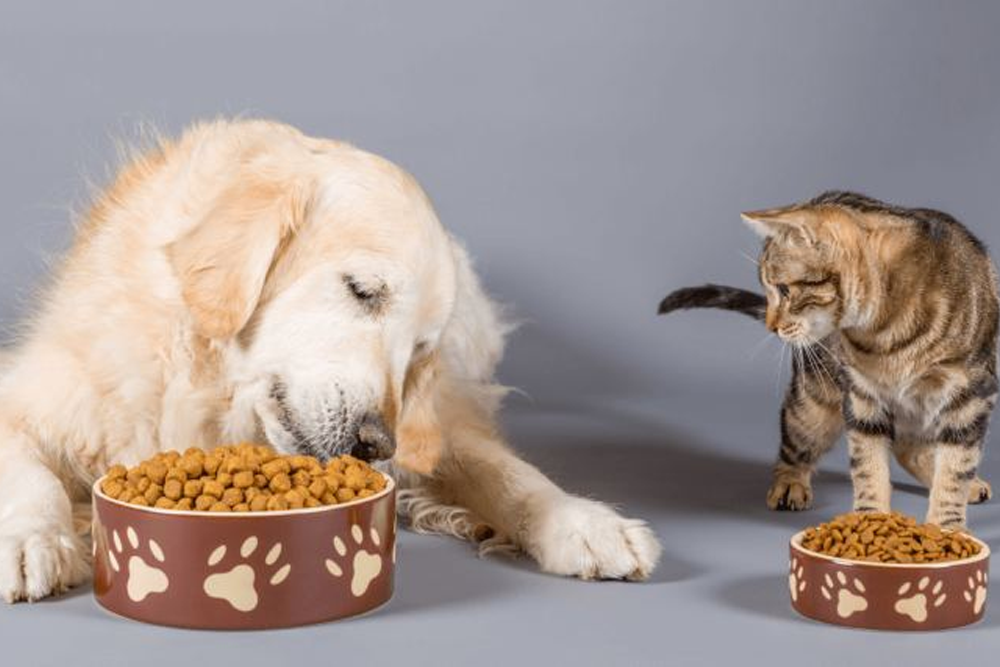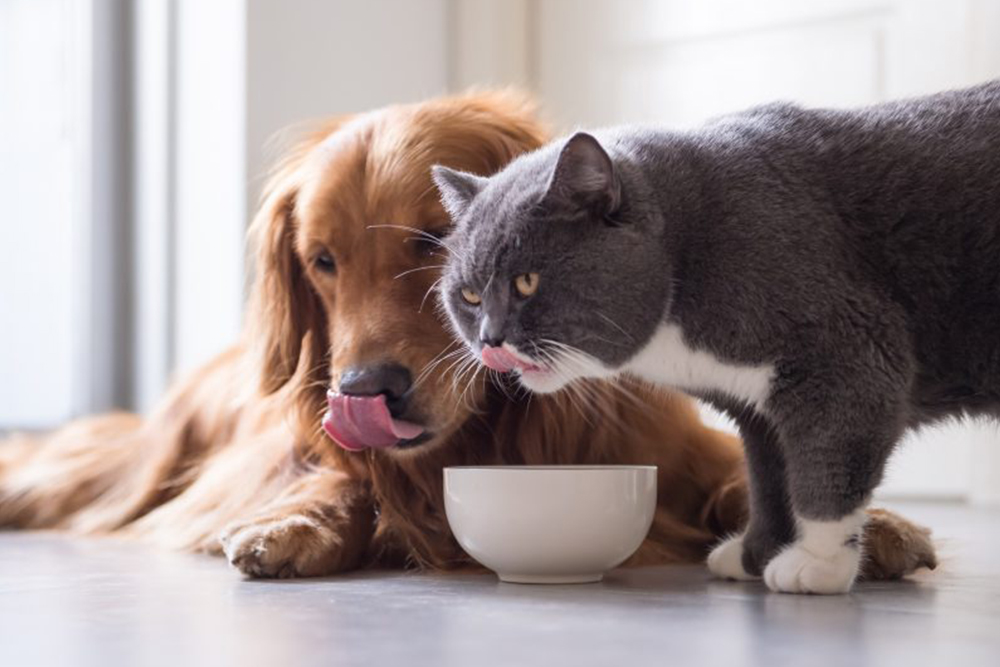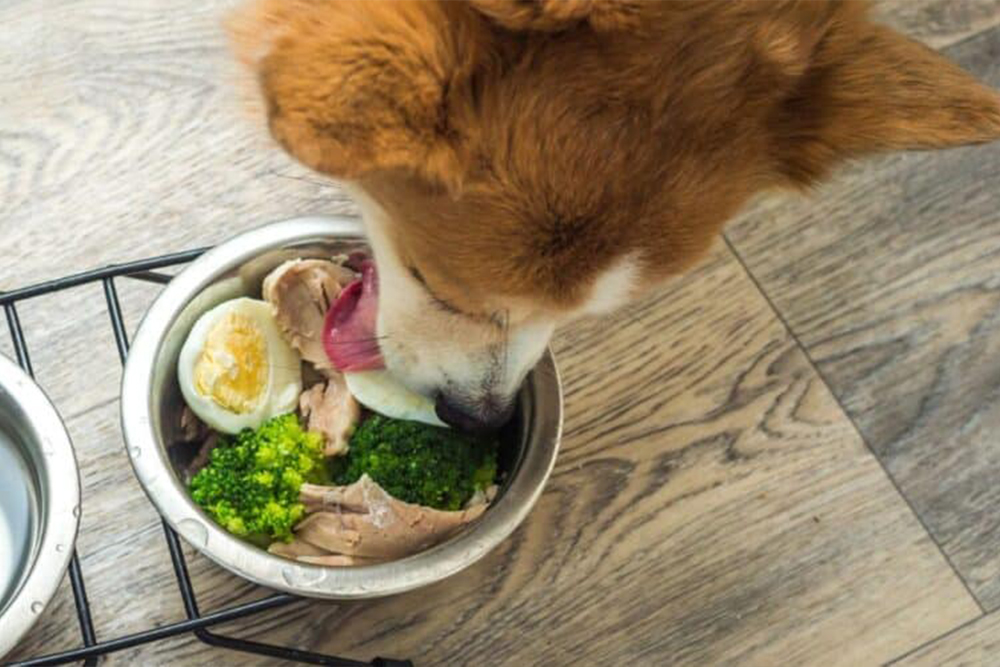Foods That Can Improve Your Pets Mood and Behavior

It’s no secret that our pets hold a special place in our hearts. Their unique personalities and quirks bring joy to our lives, and we want to do everything we can to keep them happy and healthy. One often overlooked, yet crucial aspect of pet care is their diet. Just like humans, the food our pets consume can have a significant impact on their mood and behavior. In this blog post, we’ll explore various foods that can improve your pet’s mood and behavior, as well as the science behind these benefits.
Related articles
1- How to Prevent Boredom and Keep Your Pet Engaged in Their Activities
2- Discover the Latest Techniques to Improve Your Pet Mental Health
3- How to Introduce New Activities in Your Pet’s Routine Safely and Funly
4- Discover how your pets can live longer with these simple tips
The Gut-Brain Axis and Its Role in Pet Behavior
Before diving into specific foods, it’s essential to understand the gut-brain axis. This connection between the gastrointestinal tract and the central nervous system plays a vital role in mood regulation and behavior for both humans and animals. The gut is home to trillions of bacteria, referred to as the gut microbiota, which help digest food and produce essential nutrients and neurotransmitters. These neurotransmitters, such as serotonin and dopamine, are responsible for regulating mood, appetite, and sleep.
A healthy and diverse gut microbiota is essential for optimal mental and physical health. When the balance of these bacteria is disrupted, it can lead to inflammation, which can directly affect mood, behavior, and overall wellbeing. By providing your pet with a diet rich in specific nutrients and probiotics, you can help maintain a balanced gut microbiota, and in turn, positively influence their mood and behavior.
Foods That Can Improve Your Pet’s Mood and Behavior
1. Omega-3 Fatty Acids
Omega-3 fatty acids are essential nutrients that play a crucial role in brain function and overall health. They have been shown to reduce inflammation, improve cognitive function, and even help alleviate symptoms of anxiety and depression. Some excellent sources of omega-3 fatty acids for pets include:
- Fish: Salmon, sardines, and mackerel are all rich in omega-3s. Aim to provide your pet with fish at least once or twice per week.
- Fish oil supplements: If your pet is not a fan of fish, consider a fish oil supplement designed specifically for pets. These supplements can be added to your pet’s regular food or given as a treat.
- Flaxseed: Ground flaxseed can be a good source of omega-3 for pets, particularly for those with fish allergies. Sprinkle a small amount on their food daily for best results.
2. Probiotics
As mentioned earlier, a healthy gut microbiota is crucial for mood regulation. Probiotics are live bacteria and yeast that can provide numerous health benefits, including improved digestion, immune function, and mental health. To incorporate probiotics into your pet’s diet, consider the following options:
- Probiotic supplements: Many pet-specific probiotic supplements are available on the market. Look for a product with a variety of strains and a high CFU (colony-forming units) count to ensure maximum benefits.
- Fermented foods: Kefir, yogurt, and sauerkraut are examples of fermented foods rich in probiotics. Be sure to select plain, unsweetened varieties and introduce them slowly into your pet’s diet.
3. B Vitamins
B vitamins are essential for brain function, energy production, and the synthesis of neurotransmitters. A deficiency in B vitamins can lead to irritability, lethargy, and even aggression. To ensure your pet gets enough B vitamins, consider providing foods such as:
- Lean meats: Chicken, turkey, and beef are all good sources of B vitamins.
- Eggs: Eggs are a great source of B vitamins, particularly B12. Make sure to cook the eggs before serving them to your pet.
- Leafy greens: Spinach and kale are rich in B vitamins. Chop them up and mix them into your pet’s food for a nutritional boost.
4. Tryptophan
Tryptophan is an amino acid that helps produce serotonin, a neurotransmitter essential for mood regulation. Studies have shown that increased tryptophan intake can improve mood and reduce aggression. Foods high in tryptophan include:
- Turkey: Turkey is well-known for its high tryptophan content. It can be a great addition to your pet’s diet, particularly during times of stress.
- Cottage cheese: Low-fat cottage cheese can be a good source of tryptophan for pets. Start with a small amount and gradually increase as tolerated.
- Pumpkin seeds: Roasted, unsalted pumpkin seeds are a tasty treat that can provide your pet with a dose of tryptophan.
A Balanced Diet is Key
While these foods can offer mood-boosting benefits, it’s essential to remember that a balanced diet is key to overall health and wellbeing. Always consult with your veterinarian before making significant changes to your pet’s diet, particularly if they have any pre-existing health conditions.
In conclusion, by incorporating omega-3 fatty acids, probiotics, B vitamins,and tryptophan into your pet’s diet, you can help improve their mood and behavior. These nutrients work together to support a healthy gut-brain axis, which is essential for mental health and overall wellbeing. With proper nutrition and guidance from your veterinarian, you can help your pet live a happier and healthier life.
Sobre o Autor




0 Comentários